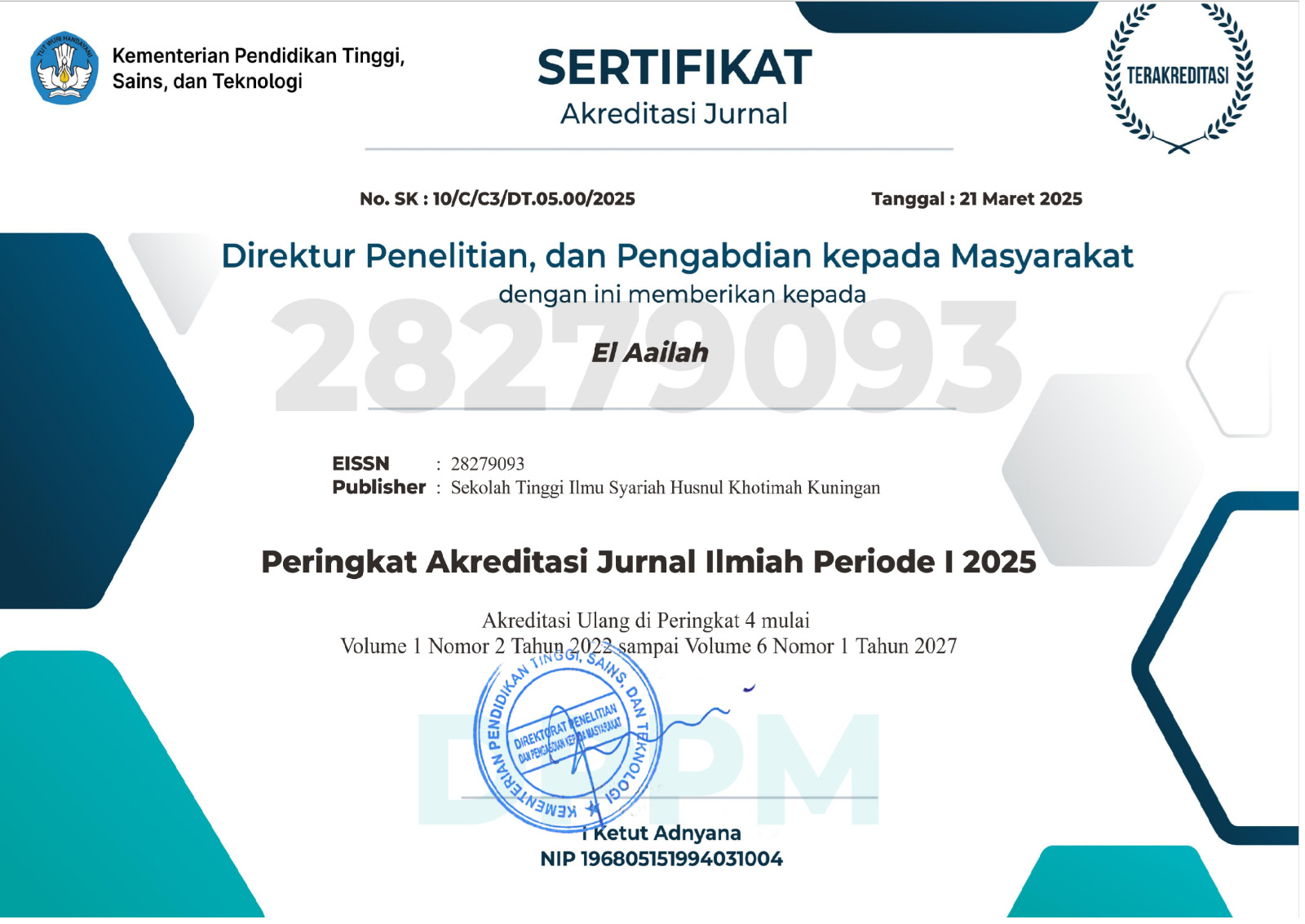Tinjauan Maqashid Syariah terhadap Haq Waris Istri Pemberi Nafkah Suami yang Tidak Bekerja
Studi Kasus pada Keluarga Tenaga Kerja Wanita Desa Ancaran Kecamatan Kuningan
DOI:
https://doi.org/10.59270/aailah.v2i1.149Keywords:
Inheritance Rights, Livelihood, Maqashid ShariaAbstract
In the household, the phenomenon that occurs in society is that it is not only the husband who makes a living, but also a wife. In general, a wife earns a living by becoming a female worker. This is like what happened in Ancaran Village, Kuningan District. This study aims to determine and analyze the Maqahsid Syariah review of the inheritance rights of non-working husbands' wives in terms of inheritance distribution for the people of Ancaran Village, Kuningan District, Kuningan Regency. The research method used is a qualitative method. This research includes the type of field research or field research. Data collection techniques used are interviews and documentation. The results of the author's interviews with the interviewees in Ancaran Village, they got all of the husband's inheritance and half of it for those whose husbands have 2 wives, because the 4 interviewees belong to an underprivileged community because the inheritance of her husband's death is only a house that they live. This is permissible with the record of obtaining permission and approval from other heirs, either voluntarily or receiving wages, because the maqasid al-shari'ah distribution of inheritance is more dominated by protection of offspring (hifdh al-nasl) than protection of assets (hifdh al-mal), and even then no one is at the dlaruriyyat (primary) level, but all are at the hajiyyat (secondary) or tahsiniyyat (tertiary) rank.
Downloads
Published
Issue
Section
License
Copyright (c) 2023 El 'Aailah

This work is licensed under a Creative Commons Attribution-NonCommercial-ShareAlike 4.0 International License.





